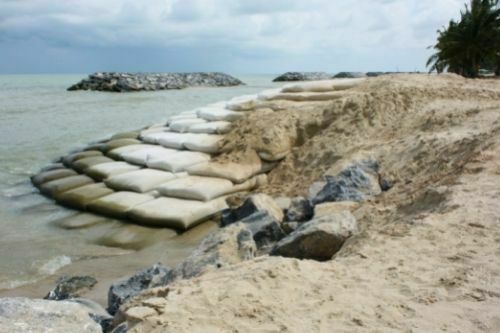Table of Contents
The Bureau of Labor Statistics suggests that employment for environmental engineers has risen to 3.7% between 2020 to 2030. Environmental engineers use their engineering knowledge to avoid, regulate, or remediate any environmental risks. One aspect of environmental engineering courses includes studies related to hazardous-waste management, which is used to assess the hazard’s relevance and offer treatment and containment recommendations. They also interact with environmental scientists, planners, hazardous waste professionals, engineers, and other specialists, such as lawyers and business experts to solve environmental issues and help develop sustainable alternatives.
Environmental engineering deals with numerous scientific and technical concepts that address climate change issues so that people can have access to sustainable safe land, water, and air.
Eligibility criteria for environmental engineering courses

The environmental engineering course has the same qualifying requirements as any other engineering course. Those interested in studying environmental engineering as an undergraduate need to fulfill the following criteria –
- You will need to take the JEE Main, JEE Advanced, and additional state-level admission exams.
- You must have completed your 10+2 studies with Physics, Chemistry, and Mathematics as subjects.
- Those who took the class XII Board exam are eligible to take the entrance exams, however, they must present their final grade sheet at the time of admission.
B.Tech Environmental Engineering Syllabus
Some common subjects in the syllabus include – water and wastewater treatment, solid waste management, industrial waste management, air pollution, sewage disposal, global warming, and other broad topics. The curriculum for environmental engineering also includes laboratory practices, industrial trips, environmental site visits, workshops, and seminars are all included in the course structure. Moreover, guest lectures by experts in this sector may also be included in the curriculum.
Take a look at the semester-wise breakdown of the B.Tech Environmental Engineering Syllabus.
Semester I
- Applied Mathematics and Physics I
- Engineering and Chemistry
- Introduction to Computer and AutoCAD
- Impact of Science and Technology on Society
- Manufacturing Process
- Practicals
- Applied Physics Lab I
- Engineering Chemistry and Graphics Lab
- Introduction to AutoCAD Office Automation and Web Design Lab
- Workshop Practice
Semester II
- Applied Mathematics and Physics II
- Electrical Science
- Environmental Studies
- Engineering Mechanics
- Introduction to Programming
- Practicals
- Applied Physics Lab II
- C Programming Lab
- Electrical Science Lab
- Engineering Mechanics Lab
- Environmental Studies Lab
Semester III
- Applied Mathematics III
- Environmental Science and Microbiology
- Instrumental Analysis
- Introduction to Electronics and Electrical Engineering
- Mechanics of Solids and Water Engineering
- Practicals
- Instrumental Analysis Lab
- Introduction to Electronics & Electrical Engineering Lab
- Mechanics of Solids and Water Engineering Lab
Semester IV –
- Computer Graphics and Multimedia
- Environmental Science & Biochemistry
- Earth Science, GIS, and Natural Pollution
- Instrumental Analysis & Pollution Measurements
- Numerical Methods & Programming
- Solid Waste Management
- Practicals
- Computer Graphics and Multimedia Lab
- Instrumental Analysis & Pollution Measurements Lab
- Numerical Methods & Programming Lab
- Solid Waste Management Lab
Specializations in environmental engineering

Some of the specializations in the field of environmental engineering are –
- Coastal Engineering
- Geophysical Engineering
- Ocean Engineering
- Solid Waste Engineering
- Ecological Engineering
- Water Resources Engineering
- Groundwater Hydrology
- Environmental Chemodynamics
- Climatology
- Geomorphology
- Collections System Design
- Environmental Management
Scope for environmental engineering
Engineers are in high demand in the current times given the pace of environmental deterioration. The need for specialists in the field of environmental engineering is crucial to lowering pollution, managing trash, utilizing renewable energy sources, and making a shift to sustainable alternatives.
If you have completed your B. E/ B.Tech degree in the subject, you can work in government and non-government organizations in the environment, energy, and agriculture sectors. Here are some job profiles you can apply for –
- Air Quality Engineer
- Assistant Policy Specialist
- Environmental Engineer
- Field Chemist
- Hydro-Geologist
- Wasteland Ecologist
- Safety Design Manager
- Waste Resource Manager
As an environmental engineer, you can opt for the following industries –
- Air/Wastewater Industries
- Colleges & Universities
- Fertilizers Plants
- Food Processing Industries
- Government Health Agencies/Departments
- Pharmaceutical Companies
- Pollution Control Laboratories
- Textile Mills
What we have to say
With the growing pace of opportunities in the industrial sector, career prospects are simply bright in the field of environmental engineering. This further paves the way for rewarding compensation as well. It promises to be a fascinating career path with many possibilities to study the skill of developing and working on innovative methods to create a sustainable and safe world to live in.
Liked this blog? Then read more: Environmental studies | Learn if this is the best course for you!
FAQ’s
Q1. What are the top countries to work as an environmental engineer in?
Answer – UK, UAE, Australia, Germany, France, Denmark, and Switzerland are some of the countries where you can work as an environmental engineer.
Q2. What are the skills required to be an environmental engineer?
Answer – Problem-solving skills, interpersonal skills, reading, writing, and knowledge about nature are some of the skills required to be an environmental engineer.
Q3. Is JEE required for environmental engineering?
Answer – You must attempt the JEE exam if you want to opt for a bachelor’s degree in environmental engineering.






